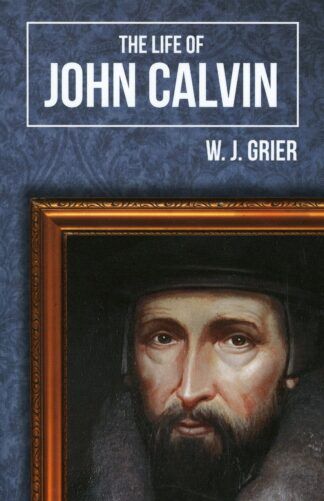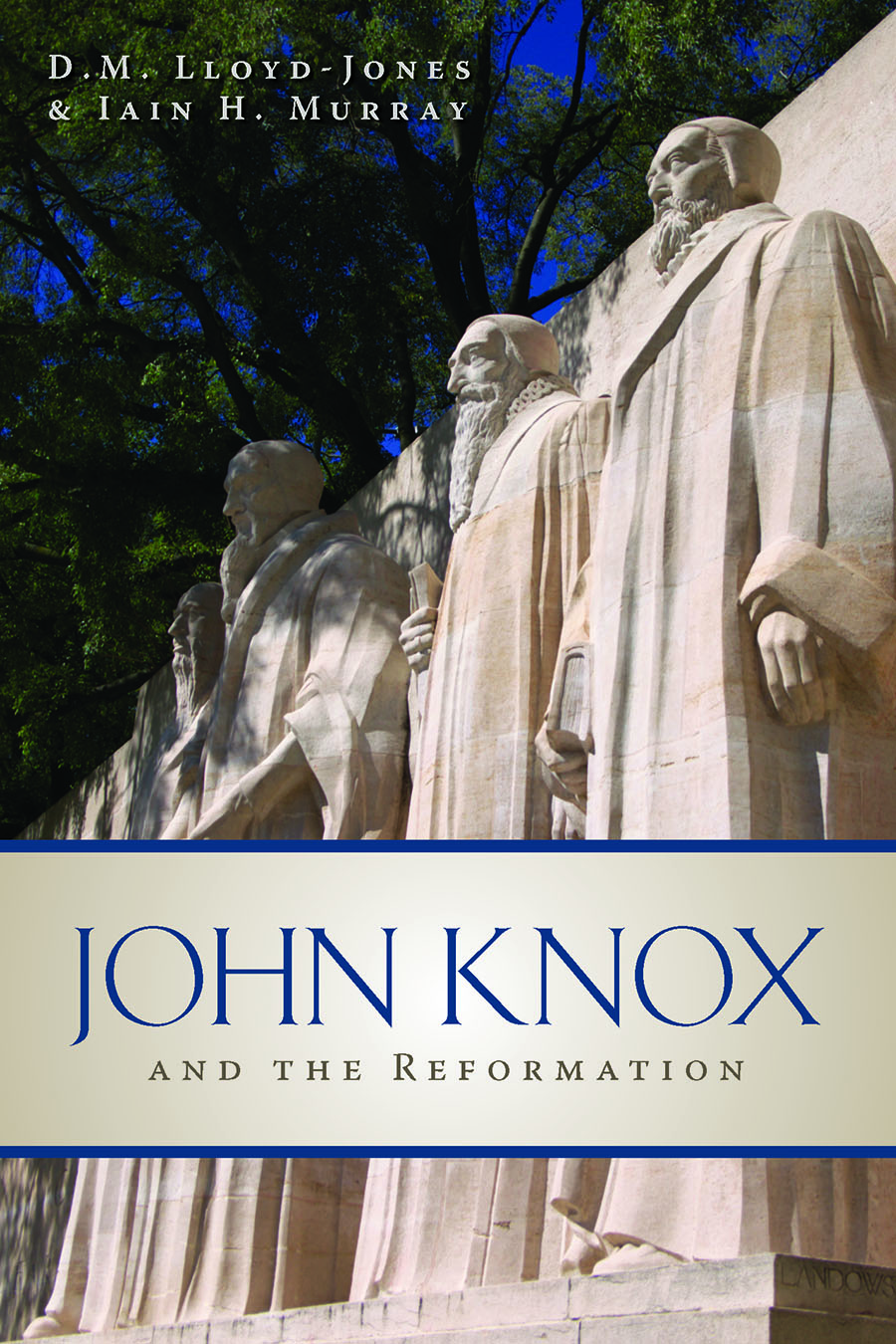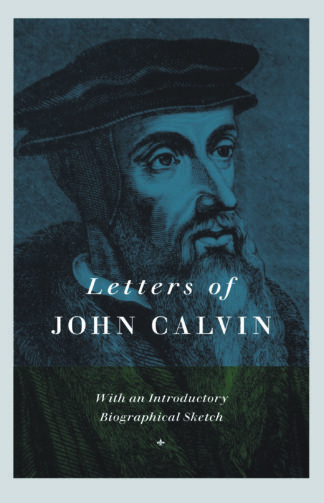The Secret of the Reformers’ Greatness
Luther stood before church and emperor at Worms and his words cannot be forgotten: ‘Here I stand; I can do no other; God help me.’ Calvin invited an infuriated mob to shed his blood. John Knox rebuffed the queen and her court in Scotland. Courageous actions by courageous men — for courage is one of the qualities that made the Reformers great, courage which arose from a sense of the presence of God in their lives.
The heroism of Luther is well known. Let us look at the equally courageous actions of John Calvin for our examples. On December 16, 1547, the Libertines, sworn enemies of Calvin, gathered in the Senate House in Geneva determined to destroy the Reformer. Unusual circumstances made it appear that they would succeed. At the risk of his life, Calvin appeared in the midst of the armed crowd. Amidst loud cries for his death, he stood with folded arms and looked the agitators in the face. No one struck him down. Then, advancing through their ranks with his breast bared, he challenged them, ‘If you want blood, there are still a few drops here; strike then!’ No arm was raised. Calvin slowly ascended the stairway and addressed a meeting of the Council of Two Hundred which was in session. Descending the stairs, he faced the crowd again accompanied by one of the city councillors. He called for silence and addressed the people with such energy and daring that tears flowed from many eyes and the crowd retired in silence.
The opposition soon made other plans to destroy or discredit the Reformer. One of these resulted in a direct confrontation of Calvin and the Council of Two Hundred. The issue was the excommunication of Philibert Berthelier, the Council’s secretary, by the consistory of the Church of Geneva in 1551 and his absolution by the state Council in 1553. The following Sunday was communion. Calvin preached in St. Peter’s, and at the close of the sermon declared that he would never profane the sacrament by giving it to an excommunicated person. Over his head on the pulpit his emblem was set: a heart aflame in an outstretched hand offered to God. His famous motto was embossed on the dark-red velvet pulpit cover: Soli Deo Gloria. Raising his voice and lifting up his hands, he exclaimed, in the words of St. Chrysostom: ‘I will lay down my life before these hands give the sacred things of God to those who have been branded as his despisers.’
A crowd of Libertines surged forward to the table. Calvin, descending from the pulpit, stood before the table. With drawn sword a Libertine cried, ‘Administer communion to us or you will die.’ His head thrown back and his arms extended over the sacred elements, Calvin responded that although they might cut off his arms, shed his blood, and take his life, they would never force him to give holy things to the profane and dishonour the table of his God. The crowd was stunned, and a long silence followed the dramatic moment. Perrin, one of the city syndics opposed to Calvin, quietly ordered Berthelier not to approach the table. After the crowd withdrew, Beza reports, communion was celebrated ‘in profound silence and under a solemn awe, as if the Deity himself had been visibly present among them.’
Whence came this courage of Calvin, Luther, Knox, and others? It arose from a strong sense of the presence of God in their lives. The Reformers felt themselves to be living, as they testified, coram Deo, before the face of God. Even during his struggle for an assurance of salvation, Luther felt that he stood in the very presence of God: ‘However irreproachable I lived as a monk,’ he said, ‘I felt myself in the presence of God to be a sinner with a most unquiet conscience.’ He felt that he stood in the very presence of God.
Karl Holl writes that Luther felt that God is present immediately in the conscience; this is the proof for his being. God is not just a god of reason; for such a one would only be a god of works-righteousness who would not bother himself with a sinner. The living God, Luther felt, knows us and graciously makes himself known as the one before whom we spend all our days. Moreover, Luther believed that in our Anfechtung, the spiritual struggle which Christians must wage, we wrestle not only with the devil but, like Jacob at Jabbok, with God. He is present even in our darkest and apparently most God-forsaken moments.
Luther was not the only Reformer frequently to use the expression coram Deo and the idea it was meant to express. In a climactic moment John Knox retorted to Queen Mary of Scotland and her court, ‘Madam, in God’s presence I speak.’ The expression was also frequently used by Calvin. His greatest biographer, Emile Doumergue, refers to Calvin as the theologian of the Holy Spirit par excellence. The Reformer can with equal propriety be described as the theologian who lived and laboured conscious of the presence of God. This can be proved by a study of Calvin’s doctrine of providence; of his teaching concerning the divine image in man; of his concept of creation in which he sees God presenting himself to us daily; of his views on vocation, the Christian’s spiritual struggle, prayer, suffering, meditation, the Word and Sacraments, and salvation, particularly of the Christian’s union with Christ. Coram Deo:
That was the pivot of Calvin’s religious and theological thought and it was the centre of his life. Everything moves from this central conviction and back to it again, like the waters of a fountain.
But the Reformers did not invent this idea; they found it in Scripture.
They saw it in Elijah who said, ‘As the Lord, the God of Israel, lives, before whom I stand.’ That conviction, which he stated repeatedly, made Elijah strong before Ahab and Jezebel and the prophets of Baal. Once, in a life-and-death contest, he faced four hundred and fifty prophets. On other occasions he stood before the hostile king. But because he knew that he also stood before the living God before whom whole ‘nations are like a drop from a bucket,’ he was equal to the challenge and fulfilled his ministry.
Other prophets had similar experiences; that is why they were prophets.
Isaiah saw the Lord in the temple and was overwhelmed with a sense of mission. Micah said that he was ‘filled with power, with the Spirit of the Lord, and with justice and might.’ Jeremiah was set ‘over nations and over kingdoms to pluck up and to break down, to destroy and to overflow, to build and to plant.’ He might be ridiculed and cast into a dungeon for a time, but he could not fail. For God had made him ‘a fortified city, an iron pillar, and bronze walls against the whole land, against the kings of Judah, its princes, its priests, and the people of the land.’ They would fight against him, but they could not prevail, because God was with him. The divine word which was given Jeremiah was like fire, like a hammer which breaks the rock in pieces.
The Reformers were aware that Israel’s greatest king, David, also had an acute awareness of God’s presence. The clearest testimony to this is the many spiritual songs that he wrote, of which the best known is Psalm 23. Here David, himself a shepherd, tells of his fellowship with God: ‘The Lord is my Shepherd, I shall not want. . .’ Perhaps the Psalm’s most meaningful line is the one that reads: ‘For thou art with me.’
When David’s Son, a greater than David, appeared, God manifested his presence in the midst of his people more clearly, more palpably, than ever before or since. Jesus Christ was Immanuel, God with us, and when men had been with him they knew that they had been with God. Before his return to heaven, he promised that he would always be with them in the Holy Spirit, and the church soon learned the reality and the meaning of that rich gift. Thereafter, his people experienced a marked awareness of being in the presence of their Lord. Not all have felt this presence or exercised this power as dramatically as Elijah or Jeremiah, David or the first disciples, or the Reformers, but that presence and power are there nevertheless. And he is there! That is why his presence and power are experienced.
This conviction of the presence of God in the lives of his people, a conviction which was recaptured by the Reformers, is the opposite of the God-is-dead talk that went the circuit a few years ago and then suddenly died. Moreover, it is the secret of successful Christian living. On our own, no matter how successfully we may appear to be living, we are bound ultimately to fail. But we cannot fail in life’s most important issues, in those that matter in the long run (which is the run that counts), if we live before the face of God. We shall have our ups and downs, like every Christian, but, like Luther who wrote it into a hymn, we know that Christ ‘must win the battle.’ The world may buffet the believer but, in the words of the Psalmist, ‘his heart is fixed, trusting in the Lord.’
In one of his songs, David wrote:
I keep the Lord always before me;
because he is at my right hand, I shall not be moved (Ps. 16:8).
Before his ascension, David’s Son said:
All authority in heaven and on earth has been given to me. Go therefore and make disciples of all nations, baptizing them in the name of the Father, and of the Son, and of the Holy Spirit, teaching them to observe all that I have commanded you.
Then this promise followed:
Lo, I am with you always, to the close of the age (Matt. 28:18 f.)
This article was first published in the January 1969 edition of the Banner of Truth magazine.
More on the Reformers

Description
Luther stood before church and emperor at Worms and his words cannot be forgotten: ‘Here I stand; I can do no other; God help me.’ Calvin invited an infuriated mob to shed his blood. John Knox rebuffed the queen and her court in Scotland. Courageous actions by courageous men — for courage is one of […]

Description
Luther stood before church and emperor at Worms and his words cannot be forgotten: ‘Here I stand; I can do no other; God help me.’ Calvin invited an infuriated mob to shed his blood. John Knox rebuffed the queen and her court in Scotland. Courageous actions by courageous men — for courage is one of […]

Description
Luther stood before church and emperor at Worms and his words cannot be forgotten: ‘Here I stand; I can do no other; God help me.’ Calvin invited an infuriated mob to shed his blood. John Knox rebuffed the queen and her court in Scotland. Courageous actions by courageous men — for courage is one of […]
Latest Articles
Finished!: A Message for Easter 28 March 2024
Think about someone being selected and sent to do an especially difficult job. Some major crisis has arisen, or some massive problem needs to be tackled, and it requires the knowledge, the experience, the skill-set, the leadership that they so remarkably possess. It was like that with Jesus. Entrusted to him by God the Father […]
Every Christian a Publisher! 27 February 2024
The following article appeared in Issue 291 of the Banner Magazine, dated December 1987. ‘The Lord gave the word; great was the company of those that published it’ (Psalm 68.11) THE NEED FOR TRUTH I would like to speak to you today about the importance of the use of literature in the church, for evangelism, […]
